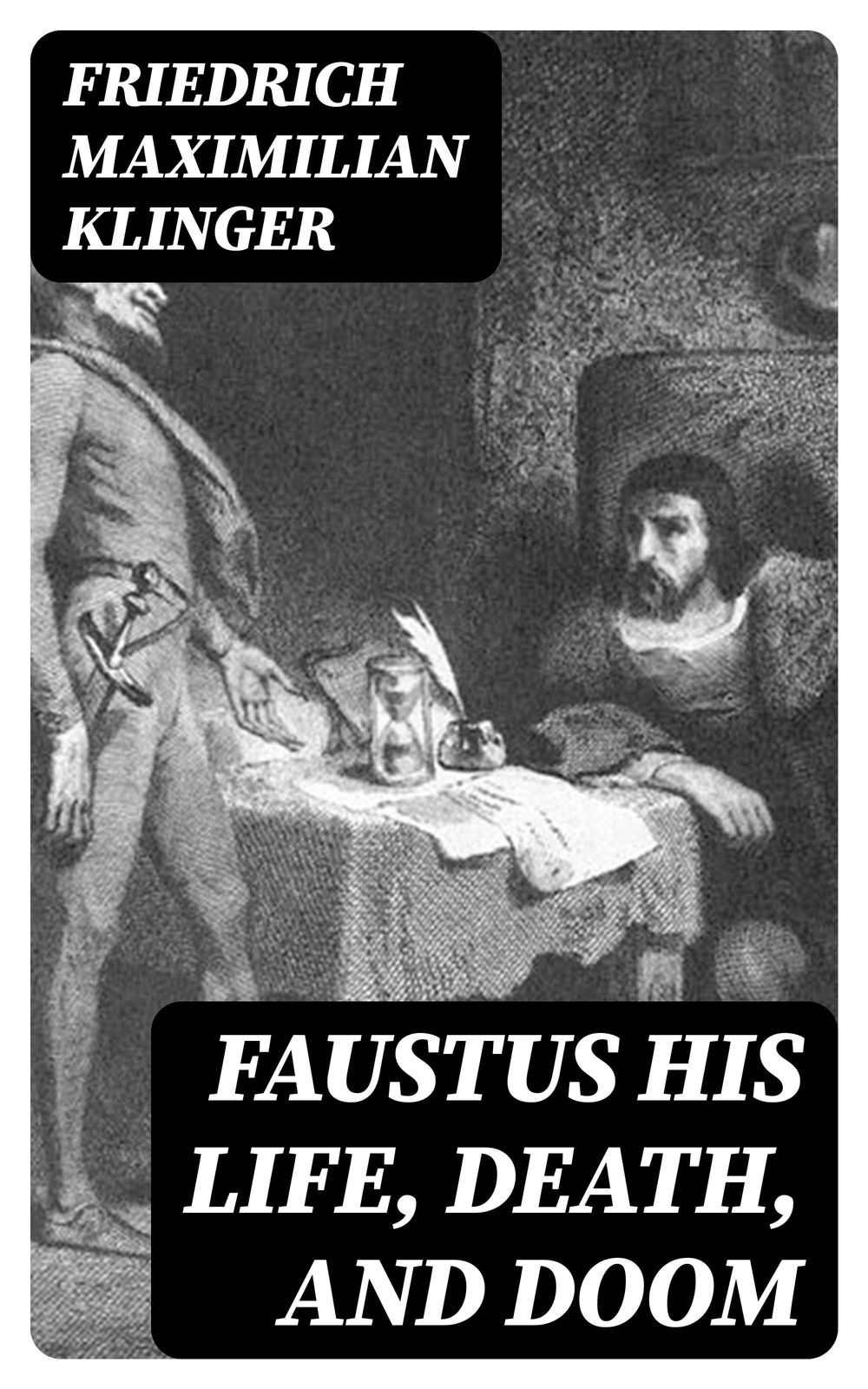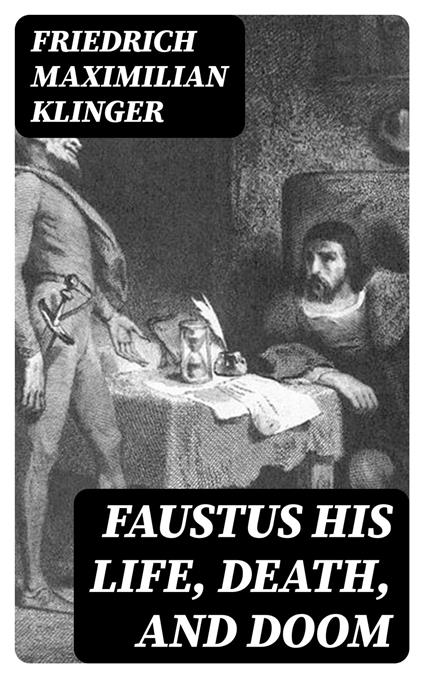Faustus his Life, Death, and Doom
Friedrich Maximilian Klinger's "Faustus his Life, Death, and Doom" presents a profound exploration of the Faustian archetype that has captivated writers and thinkers since the Renaissance. Written in 1791, the work blends elements of tragedy and philosophy, illustrating the decline of a once-great scholar who, in his desperate yearning for knowledge and power, makes a pact with the devil. Klinger's unique literary style combines vivid imagery with philosophical undercurrents, reflecting the heightened emotionalism of Sturm und Drang, a movement that emphasized individual experience and the tumultuous nature of human existence. Through this reimagining of the Faust legend, Klinger engages with themes of ambition, moral conflict, and existential dread that resonate with the Enlightenment era's burgeoning inquiry into individual agency and the nature of evil. Friedrich Maximilian Klinger (1752–1831) was an integral figure of early German Romanticism, whose formative experiences in a culturally rich milieu influenced his literary endeavors. A contemporary of Goethe, Klinger sought to assert a distinct narrative voice that questioned established norms. His own disillusionments with societal conventions and authority undoubtedly informed his portrayal of Faust as emblematic of the human condition's struggles against transgression and consequence. "Faustus his Life, Death, and Doom" is a must-read for anyone intrigued by the complexities of ambition and morality. Klinger's treatment of the Faustian theme invites readers to reflect on their own lives and the cost of their desires. In doing so, this work remains a cornerstone of German literature, urging modern audiences to confront the timeless dilemmas of human aspiration and the ethical boundaries that accompany it. Klinger's 'Faustus His Life, Death, and Doom' is an essential read for those who are captivated by the perennial allure of the Faustian bargain and its implications on the human spirit. Readers who appreciate the dramatic interplay of philosophical and theological questions, set within the context of a dark and captivating tale, will find this work to be of particular interest. As a piece of Sturm und Drang literature, it not only predates but also contextualizes the more renowned renditions of the Faust story, granting an invaluable glimpse into the heart of a tale that continues to resonate through the ages. It is recommended for scholars, students, and enthusiasts of classic German literature and those intrigued by the timeless struggle between knowledge and morality.
-
Autore:
-
Traduttore:
-
Anno edizione:2022
-
Editore:
-
Formato:
Formato:
Gli eBook venduti da Feltrinelli.it sono in formato ePub e possono essere protetti da Adobe DRM. In caso di download di un file protetto da DRM si otterrà un file in formato .acs, (Adobe Content Server Message), che dovrà essere aperto tramite Adobe Digital Editions e autorizzato tramite un account Adobe, prima di poter essere letto su pc o trasferito su dispositivi compatibili.
Cloud:
Gli eBook venduti da Feltrinelli.it sono sincronizzati automaticamente su tutti i client di lettura Kobo successivamente all’acquisto. Grazie al Cloud Kobo i progressi di lettura, le note, le evidenziazioni vengono salvati e sincronizzati automaticamente su tutti i dispositivi e le APP di lettura Kobo utilizzati per la lettura.
Clicca qui per sapere come scaricare gli ebook utilizzando un pc con sistema operativo Windows



